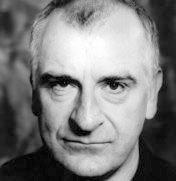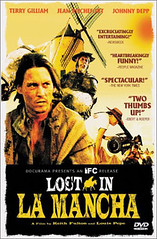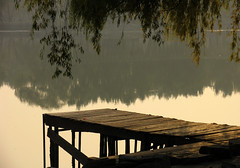Music was the theme of the weeks past; it's getting hard to keep track of time in terms of calendar dates, as everything is now secondary to the timeline of the Michaelmas Term. I'm writing this at the start of Week Six, which I'm told is a good thing: not writing so much as being alive (the act of doing the former generally a sign of the latter); it is Week Five which is the killer. And somehow, like most Oxford cliches, it turned out to be true. By the end of the week I was a nervous wreck, with bloodshot eyes and barely paying any attention to personal appearances except to vaguely color-coordinate the sort of voluminous fluffy sweater that the British specialize in, under which you could have layers of thermal underwear, an explosive and detonator, or be completely naked and just rather tubby.
One advantage to Oxford's concert scene is its intimacy, which translates not just to being able to sneeze at the back of the conductor's head, but to the fact that everything is cheaper, and it's somehow less of a giant commitment to go and attend whatever's playing at the Holywell Music Room or evensong at Christ Church. The main problem actually is keeping track of all these; unlike London, there's no Time Out to consolidate all the information as to what's going on where and give a snippy little review for recurring productions. Quite logically, a good place to look for notices is the Blackwell Music Shop on Broad Street; one of my favorite things to do is actually to stock up on propaganda material (flyers, brochures, notices, lecture lists, etc.) and then settle in at a cafe and go through them at leisure. I can do this more than once a week if I'm bored, which is probably not good for the environment because I leave them all in a heap on the cafe table; but it no doubt gives the organizers of the Oxford Philharmonic and the like a feeling of gratification to see all of their flyers gone and in need of replenishing.
The other week I caught Stephen Hough, whose recording of Rachmaninoff won an Editor's Choice award from Gramophone Magazine, in a recital at the Jacqueline du Pré building at St Hilda's College. The venue was the sort of very small and well-lit space where if you cough everyone within a five meter radius turns around and gives you a long, expressionless stare; if you attempt to alleviate the cough by fishing for and unwrapping a lozenge wrapped in cellophane deep in a bag with a zipper and velcro pockets, even people from the upper gallery will glare at you. I'm usually less concerned about who's playing as opposed to what's being played, and I was a little disappointed to find that the programme was mostly Mozart: but Stephen Hough was indeed amazing. The Guardian, I believe, said that his was the "most perfect piano playing imaginable", or something to that effect; and while I would hesitate to say that (if only because I am less certain about the actual extent of my imagination) it really was brilliant, passionate, and apparently effortless. He didn't hitch up his pants and wiggle his shoulders and take a deep breath before hitting the first note the way most pianists do; he'd simply leap up onto the stage, sit down, and begin playing without a moment's hesitation, as though the music had been burning inside him and simply leapt into flame and up and out through his fingertips and into life and motion and sound and the most wonderful music that held the little roomful of people enthralled.
A slightly more elaborate affair was the Oxford City Orchestra at the Sheldonian; the concert, last Friday evening, had as its highlights Dvorak's Symphony No 8 and Rachmaninoff's Piano Concerto No 2. Rach 2 is one of my favorite pieces of music (as it is for many people), and I was at the same time eager to hear to hear it live and anxious not to be disappointed by limp piano playing or one of those conductors who pace it at a tempo as though he had forgotten to top up the parking meter. The twenty-four year old pianist who took centre-stage that night seemed a very happy chap, in both senses of the world; one of my companions theorized that it was this gay disposition that might have accounted for the somewhat florid interpretation. We agreed, though, that florid was better than austere; and my other friend, who had always shied away from Rachmaninoff having held the impression that his music was somewhat "dark" (which it can be), was pleasantly surprised. What did come as a pleasant surprise to me, from a technical standpoint, was that the acoustics were excellent, for which credit is due to the fact that the Sheldonian's roof is about to collapse. The vaunted (though not vaulted) ceiling of the theatre has been providing an added element of excitement to the university's functions by threatening to come crashing down, and is now swathed in swaddling-cloth; or perhaps Christopher Wren in 1664 got right what the modern engineers of the Opera Bastille couldn't do in terms of acoustics. Of course, there's no heating; the wooden benches are uncomfortable; and sitting in the upper galleries you feel that if you stand up too suddenly you might find yourself catapulting straight into the middle of the strings section of the orchestra. It was, in fact, so cold that the moment the applause died down we stampeded out as though there were a fire drill and took refuge in the warm confines of the Café Rouge.
www.stephenhough.com






